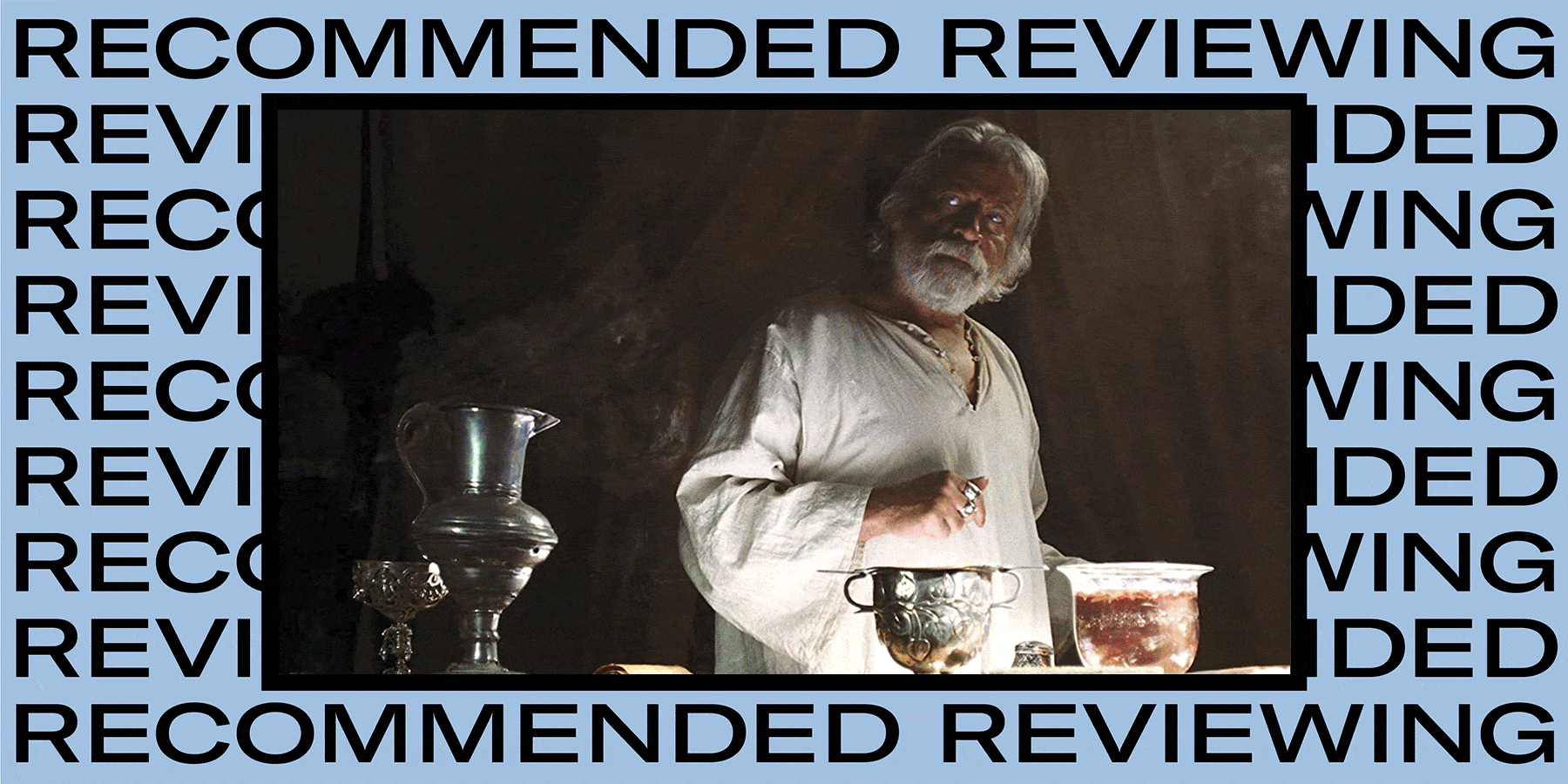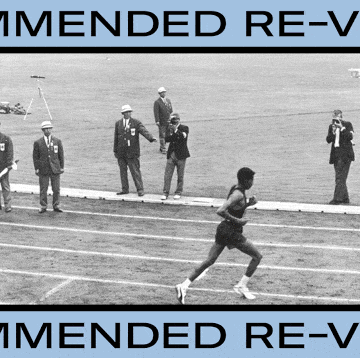Recommended Re-Viewing is a series in which we make the case for re-watching an old film or TV series which you can stream without leaving your house. It might be a plot that's so bad it's good, a scene which deserves more interrogation or a director's underrated gem.
This time, Esquire digital writer Tom Nicholson realises that Sir Ridley Scott's Roman epic was actually showing us the future.
Oliver Reed was not one of cinema's futurists. Most of his opinions and worldview were considered unreconstructed even in the Seventies. His last role, though, was a harbinger of how cinema would start eating itself in the 2020s.
In Gladiator, which turns 20 this week, he was Proximo, the former gladiator who buys and trains up Maximus Decimus Meridius, Commander of the Armies of the North, General of the etc etc etc. It was Reed's last role before his death, and perhaps his most important.
These days we're a lot more empathetic towards people with addictions, but Reed's drinking used to be a source of half-admiring, half-snide laughter. Eventually it caught up with him.
"One Sunday morning, he dropped down dead on the floor of a pub. He probably had a couple of pints and said, 'I don’t feel good,' laid on the carpet and died," Ridley Scott told Variety recently.
"He’s in this bar in Valletta and this British destroyer is anchored in the bay and the crew comes in," added screenwriter David Franzoni. "He challenges the crew to some sort of drinking debauch. He drinks some, passes out and dies. I still have his bar tab, by the way."
Reed had promised not to drink while working on Gladiator, with the support of David Hemmings, who played Cassius. That plan met with limited success.
"David Hemmings promised to look after him," Scott said, "and said to me [upon his death], ‘I’m really sorry, old boy.'"
Reed died before he'd completed all of his scenes, which left Scott and his crew in a very difficult position. Films had been completed before with stand-ins, doubles and creative editing, but this was something different: Reed's face was digitally grafted onto an extra, the script rewritten, and alternate takes of Reed as Proximo used to fill out his scenes.
The Crow did something equally impressive after Brandon Lee died part-way through filming in 1993, but Gladiator was a phenomenon. Rather than looking like a bodge job, the revenant Reed became proof of the power that digital technology now had in storytelling.
As it turned out, Reed was some way ahead of his time as a digitally recreated star, but it's become almost unremarkable. Jeff Bridges starred opposite Young Evil Jeff Bridges in Tron: Legacy in 2010, and just in the last couple of years we've seen 2018 Samuel L Jackson turn into 1995 Samuel L Jackson in Captain Marvel, Robert De Niro, Al Pacino and Joe Pesci transported into their mid-fifties in The Irishman, and Michael Douglas de-aged in Avengers: Endgame.
Even the very literally and very famously dead aren't off-limits: a CGI James Dean will appear in CGI form in the upcoming Vietnam drama Finding Jack, fighting in a war that he never lived to form an opinion on. The producers briefly thought of casting him opposite a CGI Paul Newman before thinking better of it.
Absolutely nobody thinks that that's a good idea, obviously. Gladiator was about as Old Hollywood as it was possible to be: a Roman swords-and-sandals epic in the vein of Spartacus and Ben-Hur with both Oliver Reed and Richard Harris in it. At the same time it legitimised the idea that an actor can time-travel, even beyond their years – to have their curtain call in this life, or the next.
Like this article? Sign up to our newsletter to get more delivered straight to your inbox













